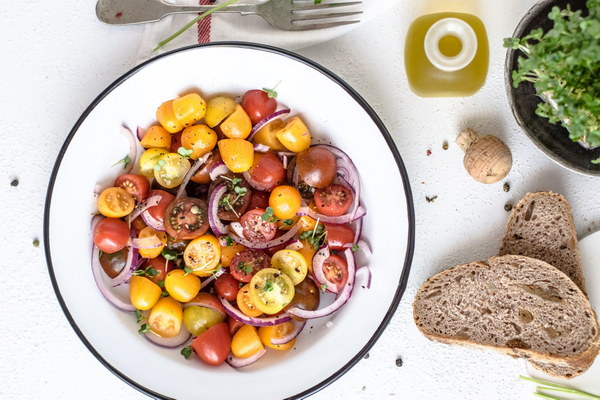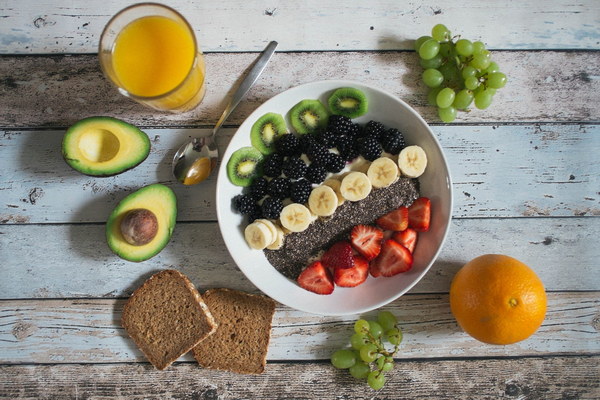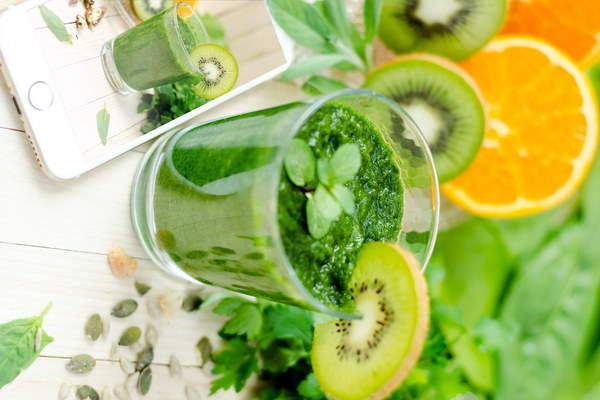Optimizing Diet for Thyroid Health and Liver Support in Hypothyroidism
Introduction:
Hyperthyroidism, often referred to as overactive thyroid, is a condition where the thyroid gland produces excessive amounts of thyroid hormones. This can lead to a range of symptoms, including weight loss, rapid heartbeat, and anxiety. To support thyroid health and liver function, adopting a well-balanced diet is crucial. This article explores the key dietary considerations for individuals with hyperthyroidism, focusing on liver-protective foods and nutrients.
1. Understanding the Thyroid and Liver Connection:
The thyroid and liver are closely connected in maintaining overall health. The thyroid gland produces hormones that regulate metabolism, while the liver filters toxins and metabolizes nutrients. When the thyroid is overactive, it can put additional stress on the liver, making it essential to support both organs through diet.
2. Nutritional Foundations for Thyroid and Liver Health:
a. Adequate Protein Intake: Protein is vital for maintaining healthy thyroid function and supporting liver detoxification. Including lean sources of protein, such as chicken, turkey, fish, and legumes, can help meet these requirements.
b. Healthy Fats: Essential fatty acids, particularly omega-3 fatty acids, are crucial for thyroid health. Foods rich in omega-3s include fatty fish, flaxseeds, chia seeds, and walnuts. These fats help reduce inflammation and support the thyroid gland.
c. Vitamin and Mineral Intake: Ensuring sufficient intake of vitamins and minerals is essential for optimal thyroid and liver function. Key nutrients include:
- Vitamin D: Found in fatty fish, fish liver oils, and fortified dairy products, vitamin D plays a role in regulating thyroid hormones.
- Selenium: Selenium is a mineral that supports the thyroid gland and helps convert thyroid hormones into their active form. Selenium-rich foods include Brazil nuts, fish, and whole grains.

- Iron: Iron deficiency can disrupt thyroid function. Incorporate iron-rich foods such as lean red meat, poultry, fish, beans, and fortified cereals.
3. Liver-Protective Foods:
To support liver health, it is important to include certain foods in your diet. These include:
a. Garlic: Garlic contains compounds that support liver detoxification and help eliminate harmful toxins from the body.
b. Cruciferous Vegetables: Vegetables like broccoli, cauliflower, and kale contain compounds that aid in liver detoxification. These vegetables should be cooked to enhance their benefits.
c. Berries: Berries, such as strawberries, blueberries, and raspberries, are rich in antioxidants that help protect the liver from oxidative stress.
d. Artichokes: Artichokes contain compounds that stimulate bile production, aiding in the elimination of waste products from the liver.
4. Foods to Avoid:
Certain foods can exacerbate symptoms of hyperthyroidism and place additional stress on the liver. It is important to limit or avoid the following:
a. High-Fat Foods: High-fat foods can burden the liver and impair its ability to process toxins. Avoid fried foods, baked goods, and fatty cuts of meat.
b. Processed Foods: Processed foods often contain additives, preservatives, and high levels of sodium, which can be harmful to both the thyroid and liver.
c. Alcohol: Alcohol is a toxic substance that can damage the liver and disrupt thyroid function. It is best to avoid alcohol altogether or limit consumption to moderate amounts.
5. Hydration and Digestion:
Staying hydrated is essential for maintaining optimal thyroid and liver function. Drinking plenty of water helps flush out toxins and supports the liver's detoxification process. Additionally, incorporating fiber-rich foods, such as fruits, vegetables, and whole grains, can aid digestion and promote a healthy liver.
Conclusion:
Adopting a well-balanced diet that supports thyroid health and liver function is crucial for individuals with hyperthyroidism. By focusing on protein, healthy fats, vitamins, minerals, and liver-protective foods, individuals can help manage their condition and support overall well-being. Remember to consult with a healthcare professional or registered dietitian for personalized dietary recommendations.









